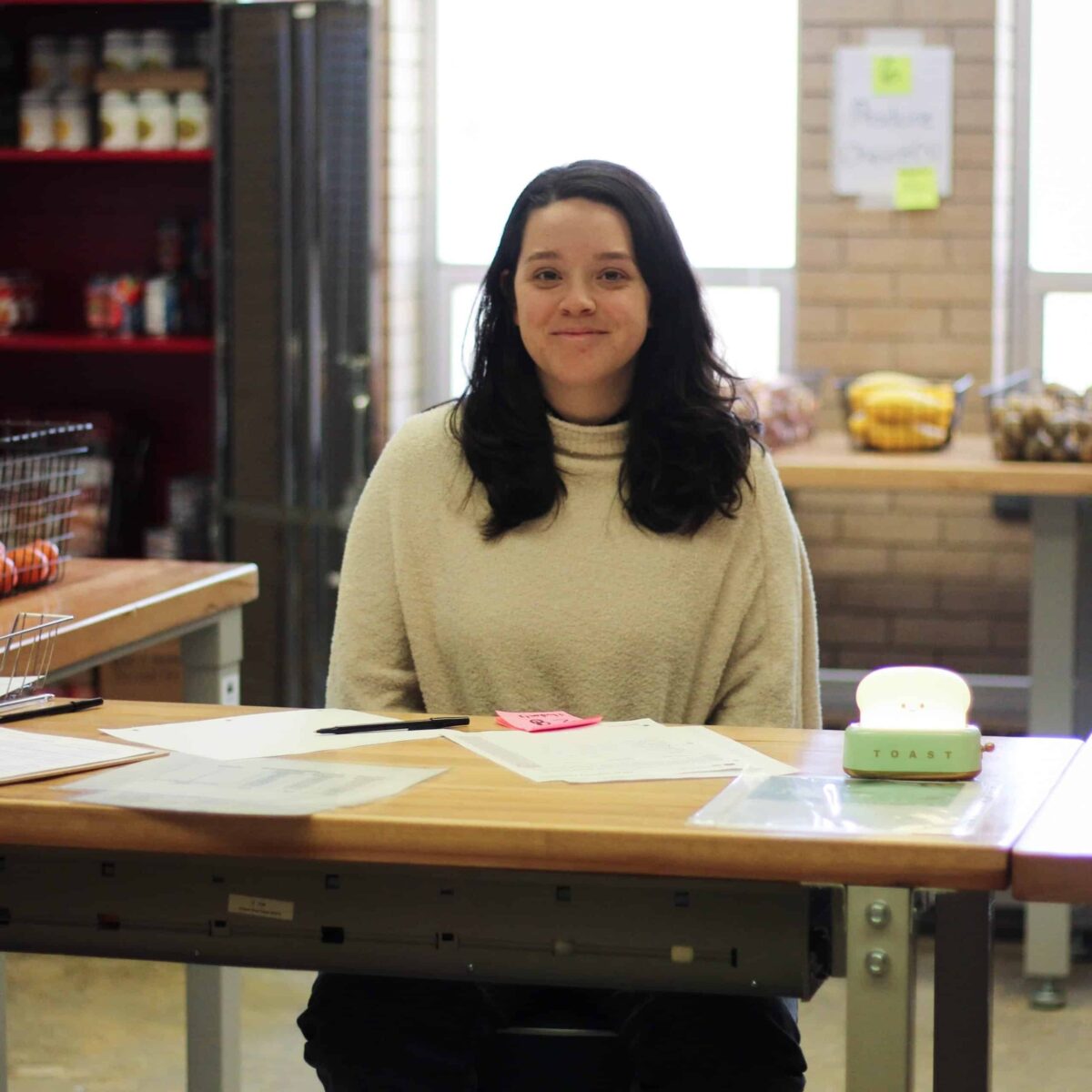Christine Spiers, program coordinator for Western’s department of Student Health and Wellness, on the spectrum of food insecurity, becoming a Hunger Free campus, and why students should utilize the food hub liberally.
By Em Tanner
Update: Dean Gary Pierson sent the following email out to all students on June 28, 2023, announcing a location change for the pantry:
Since our doors opened this February we have been fortunate to have served over 300 students. As we continue to grow it is apparent that we are in need of a bigger space.
The Mountaineer Marketplace will be moving to its new space in the Pinnacles Hall Multipurpose Room. This room is easily accessible with exterior access on the South corner of Pinnacles, by the fire pit. Our hours will remain the same, Monday and Wednesday from 4 to 7 p.m., for the remainder of the summer.
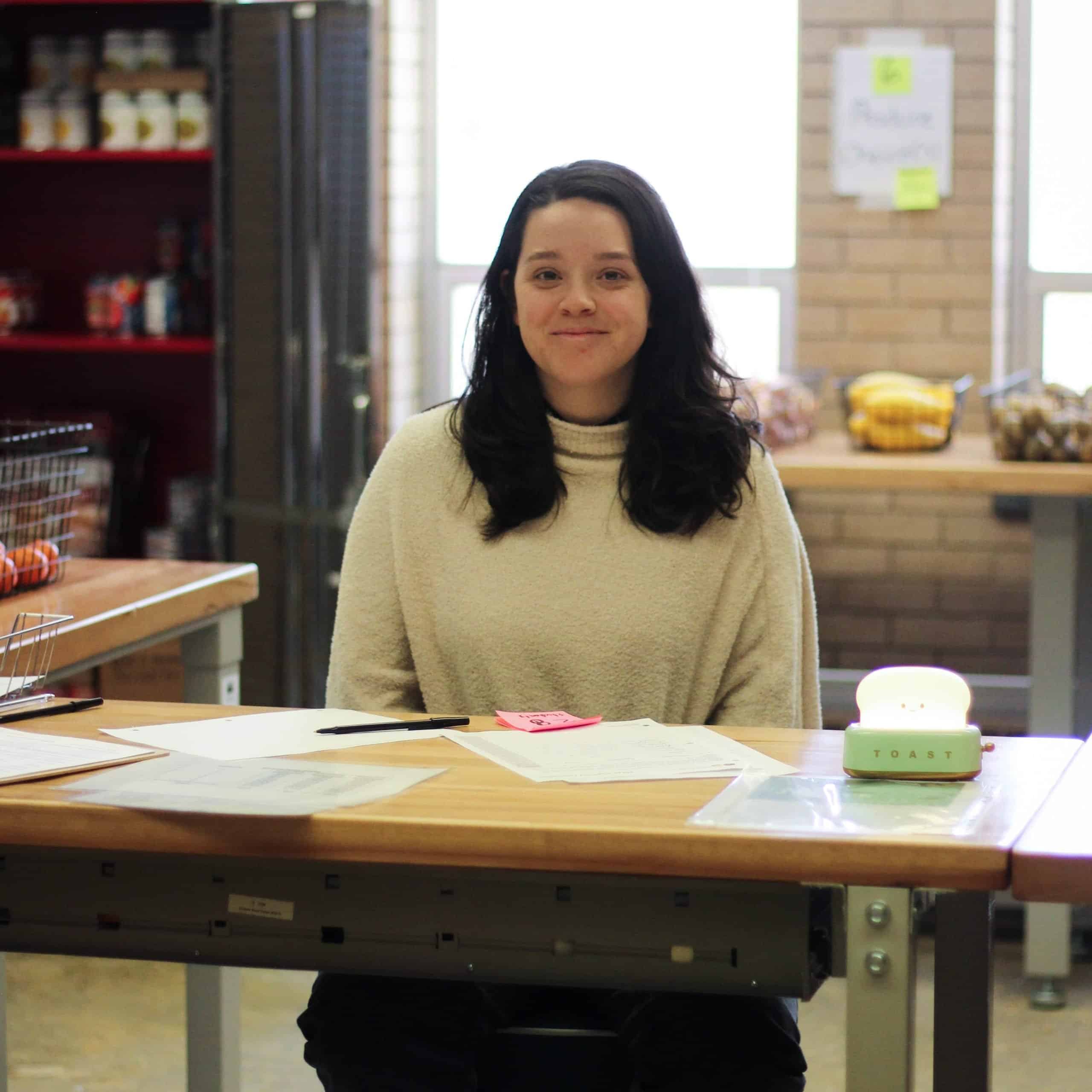
As inflation continues to hit the grocery aisle and food insecurity remains a serious issue across the Gunnison Valley, particularly for college students, Western has partnered with the Gunnison Country Food Pantry (GCFP) to create the Mountaineer Market and Food Hub.
The new food hub, which opened Feb. 7, is a space where students, staff, and faculty can drop in and select a variety of free food on Western’s campus. In just the first week, the Mountaineer Market served nearly 50 students.
The market is located in room 115 of the Leslie J. Savage Library, and is open for all students (remember to bring your ID!) to come and grab free food on Tuesdays and Thursdays from 12:30 to 2:30 p.m.
The space is not just reserved for students, either — faculty and staff are welcome to stop by on the first Friday of every month from 2 to 4 p.m..
And for anyone in search of some delicious carbs, free bread will always be available just outside the food hub’s doors.
All visitors to the market ar asked to bring their own bag and fill out a short application that will only be used by the pantry to collect required demographic information.
The Mountaineer Market has been made possible by collaboration and financial contribution from the GCFP, Western’s student government, Omicron Delta Kappa (ODK), Western’s Foundation, AmeriCorps, and the university’s Organics Guild.
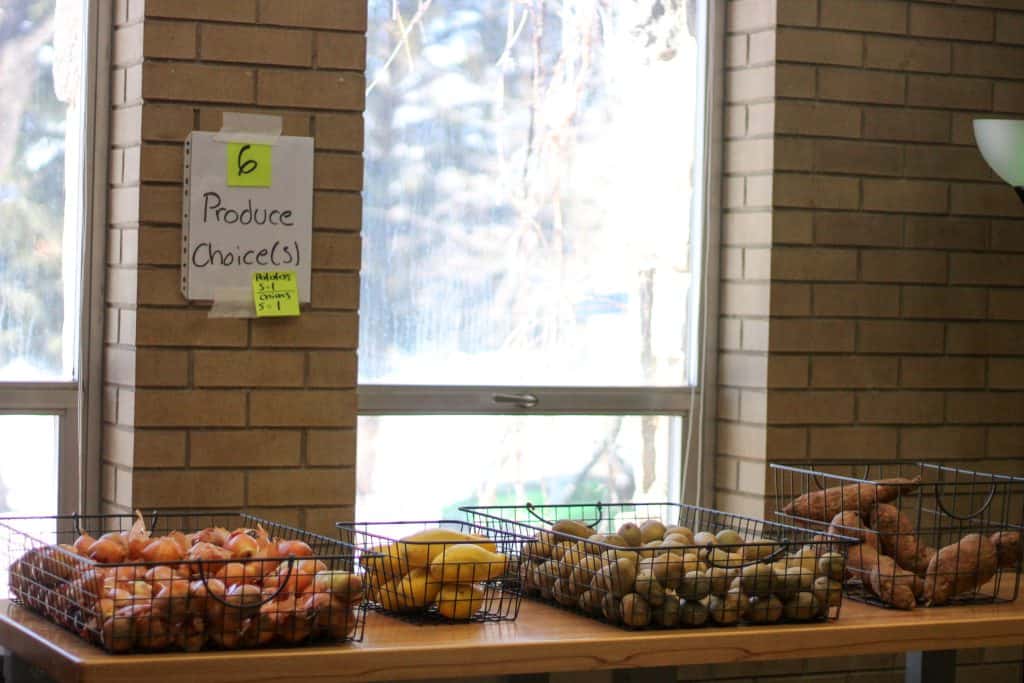
Meeting the need
“This has been a long time coming,” notes Christine Spiers. Previously a peer health mentor at Western, Spiers graduated in December and immediately jumped into a leadership position with the Mountaineer Market Food Hub as part of her role as program coordinator for the Student Health and Wellness department.
“My main focus is to provide students with access to food and access to food that is nutritious,” she says.
While Western has hosted several pop-up food events, primarily through the service organization Omicron Delta Kappa (ODK), but there has never been a permanent pantry located on campus.
Spiers explains that the new pantry hub on campus is part of a larger, ongoing effort to reduce food insecurity on campus and attain Hunger Free Campus designation from the state.
Due to its proximity and existing resources, a partnership with the Gunnison County Food Pantry, which has been serving Gunnison County residents since 2006, made the most sense.
The pantry has played a critical role in the opening of an on-campus location for the Western community.
“Access to food goes beyond just making sure someone’s not hungry or has eaten that day. If you’re hungry, you’re stressing about that; the idea of what you need to do for school and work goes out the door. We have to be able to provide those basic needs for our students, community, faculty, and staff,” says Spiers, highlighting the pantry’s importance within the community.

A hub for all
For those students who may be unsure if they should use the pantry or not, Spiers emphasizes Mountaineer Market’s mission to end the stigmas associated with food pantries.
“It doesn’t even matter if you’re making $100,000 a year, if something comes up in your life and you need food, it is our job and priority to feed you and make sure you have access to food that is healthy and nutritious and that you’re not stressing about it,” says Spiers. “Another thing we’ve been stressing at the pantry is that you are not your parent’s income.”
She also stresses that the supply of food is not restricted — and that students seeking assistance will not strain or exhaust the pantry’s stores of food.
“We have plenty of food and the more students who come, the more food that we can get from the state and Care and Share [food bank]… at the end of the day, don’t feel like you’re taking it from someone because if you feel that you need it, you’re not taking it from someone —you’re providing it for yourself,” she says.
“The more research I’ve done, I’ve realized that hunger and food insecurity falls on a scale, and so just because you’re not starving or don’t have access to food at all doesn’t mean that you don’t fall into the category of needing food,” notes Spiers.
For those considering seeking help — know that you are not alone. The number of Americans facing food insecurity doubled during the first two years of the pandemic. Roughly a third of students enrolled in four-year colleges have struggled with food insecurity in just the last month. Those numbers increase for members of marginalized groups.
“Most college students fall into this, maybe they skip a meal because they can’t afford it or maybe they choose a less healthy option because that’s the cheaper option, and that is still considered food insecurity,” Spiers explains.
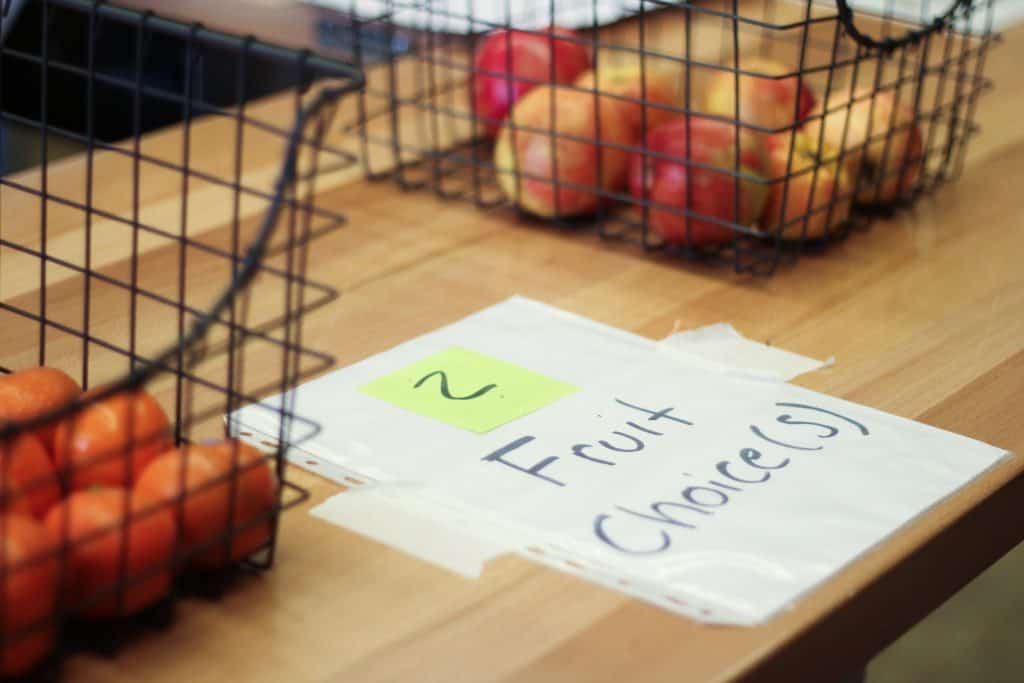
Dietary restrictions are catered to at Mountaineer Market, and food options include gluten-free, vegetarian, and vegan options. If any student requests food for their specific restrictions, Spiers and the GCFP will work with them to help meet those individual needs.
Spiers and Mountaineer Market will be working with Mountain Roots and the GCFP to provide learning opportunities to students about cooking, nutrition, and food insecurity.
Additionally, students can now go to the hub and receive help in signing up for SNAP (the federal Supplemental Nutrition Assistance Program program).
Several food drives and initiatives will be announced in partnership with the Mountaineer Market in the coming months.
Food will be distributed to the hub through several different sources, including Care and Share, Hunger Free America, a national nonprofit, and The Emergency Food Assistance Program (TEFAP, a federal program through the U.S. Department of Agriculture.
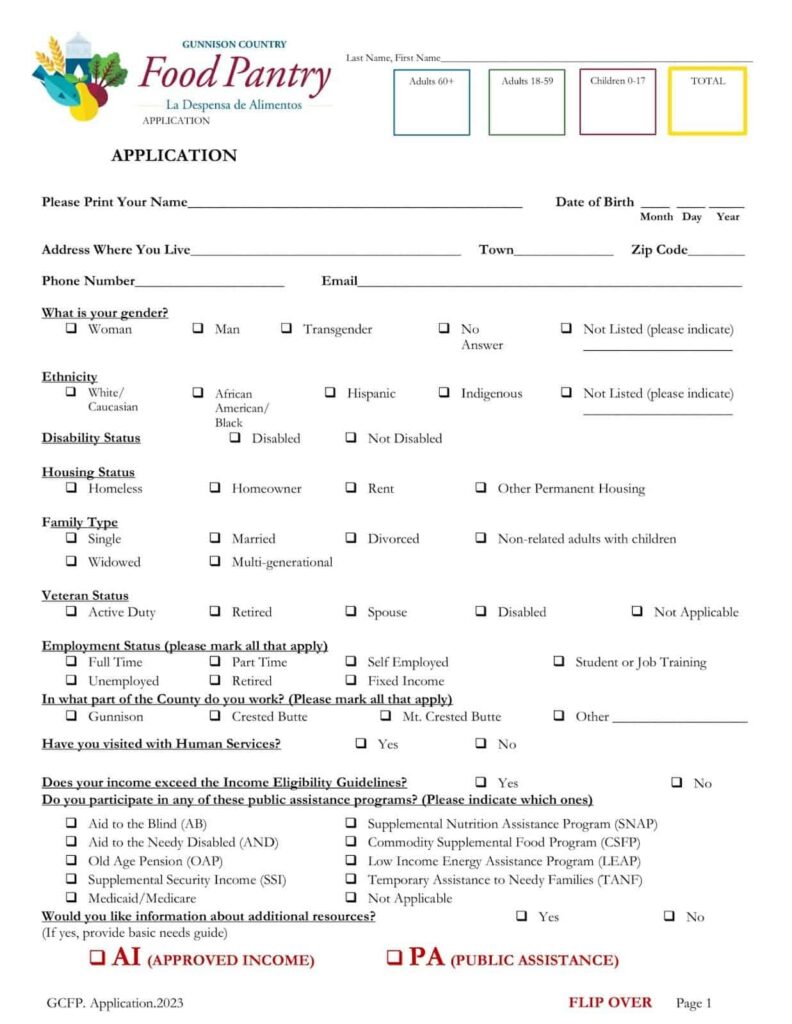
TEFAP Disclaimer:
In accordance with federal civil rights law and U.S. Department of Agriculture (USDA) civil rights regulations and policies, this institution is prohibited from discriminating on the basis of race, color, national origin, sex (including gender identity and sexual orientation), disability, age, or reprisal or retaliation for prior civil rights activity.
Program information may be made available in languages other than English. Persons with disabilities who require alternative means of communication to obtain program information (e.g., Braille, large print, audiotape, American Sign Language), should contact the responsible state or local agency that administers the program or USDA’s TARGET Center at (202) 720-2600 (voice and TTY) or contact USDA through the Federal Relay Service at (800) 877-8339.
To file a program discrimination complaint, a Complainant should complete a Form AD-3027, USDA Program Discrimination Complaint Form which can be obtained online at: https://www.usda.gov/sites/default/files/documents/ad-3027.pdf, from any USDA office, by calling (866) 632-9992, or by writing a letter addressed to USDA. The letter must contain the complainant’s name, address, telephone number, and a written description of the alleged discriminatory action in sufficient detail to inform the Assistant Secretary for Civil Rights (ASCR) about the nature and date of an alleged civil rights violation. The completed AD-3027 form or letter must be submitted to USDA by:
1. mail: U.S. Department of Agriculture Office of the Assistant Secretary for Civil Rights 1400 Independence Avenue, SW Washington, D.C. 20250-9410; or
2. fax: (833) 256-1665 or (202) 690-7442; or
3. email: Program.Intake@usda.gov
This institution is an equal opportunity provider.

